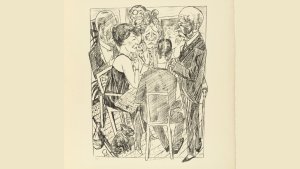This paper analyzes the 2020 election, focusing on voters, not political money, and emphasizing the importance of economic geography. Drawing extensively on county election returns, it analyzes how spatial factors combined with industrial structures to shape the outcome. It treats COVID 19’s role at length. The paper reviews studies suggesting that COVID 19 did not matter much, but then sets out a new approach indicating it mattered a great deal. The study analyzes the impact on the vote not only of unemployment but differences in income and industry structures, along with demographic factors, including religion, ethnicity, and race. It also studies how the waves of wildcat strikes and social protests that punctuated 2020 affected the vote in specific areas. Trump’s very controversial trade policies and his little-discussed farm policies receive detailed attention. The paper concludes with a look at how political money helped make the results of the Congressional election different from the Presidential race. It also highlights the continuing importance of private equity and energy sectors opposed to government action to reverse climate change as conservative forces in (especially) the Republican Party, together with agricultural interests.
Working Paper
The Knife Edge Election of 2020: American Politics Between Washington, Kabul, and Weimar
Working Paper Series By
Working Paper Series By
Download- Wp 169 Ferg Jorg Chen The Knife Edge Election (pdf, 1.88 MB)
- G3 Corporate Finance and Governance
- G38 Government Policy and Regulation
- N2 Financial Markets and Institutions
- N22 U.S.; Canada: 1913-
- P1 Capitalist Systems
- P16 Political Economy
- D7 Analysis of Collective Decision-Making
- D72 Political Processes: Rent-Seeking, Lobbying, Elections, Legislatures, and Voting Behavior
- D71 Social Choice; Clubs; Committees; Associations
- L51 Economics of Regulation





